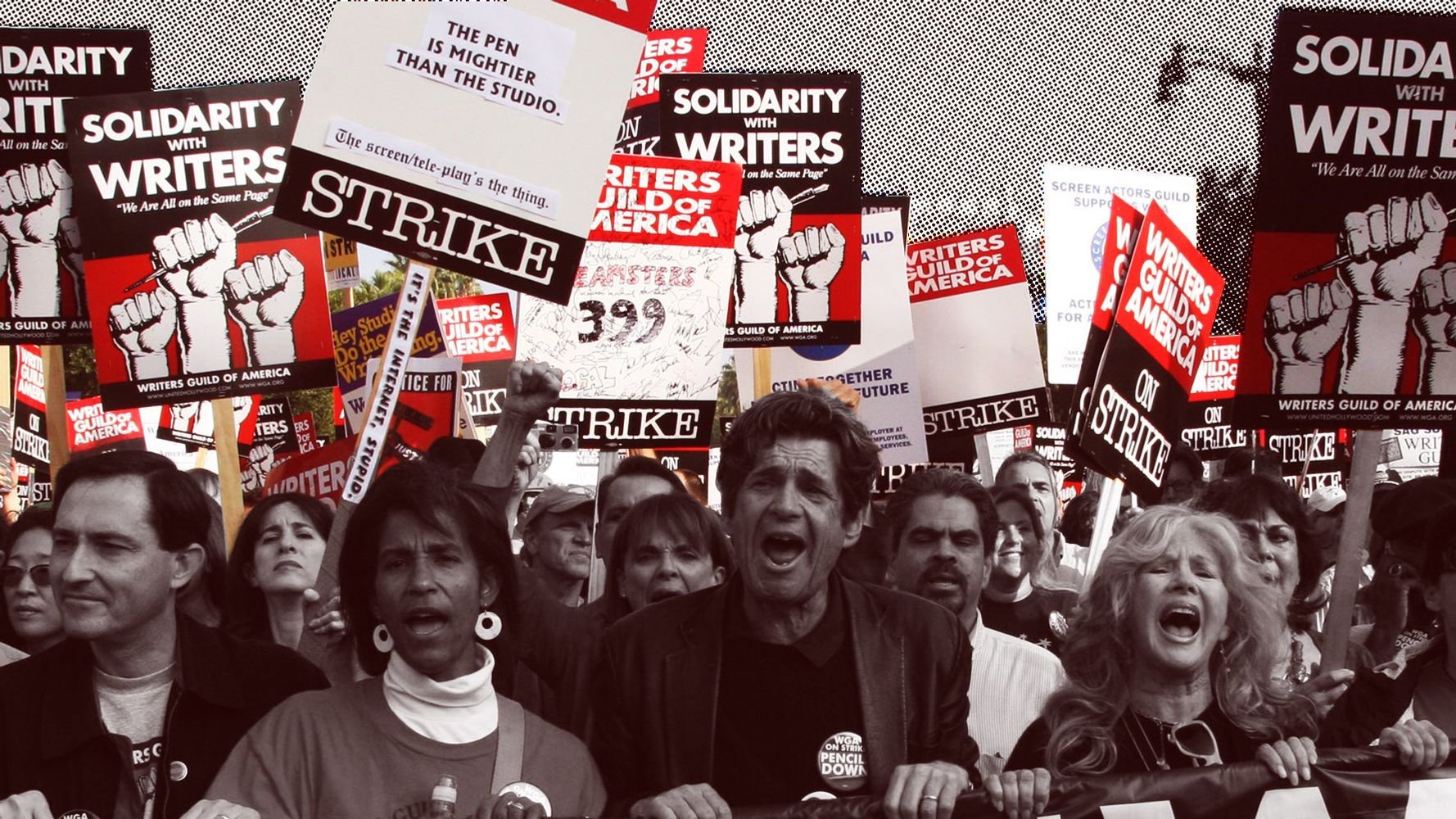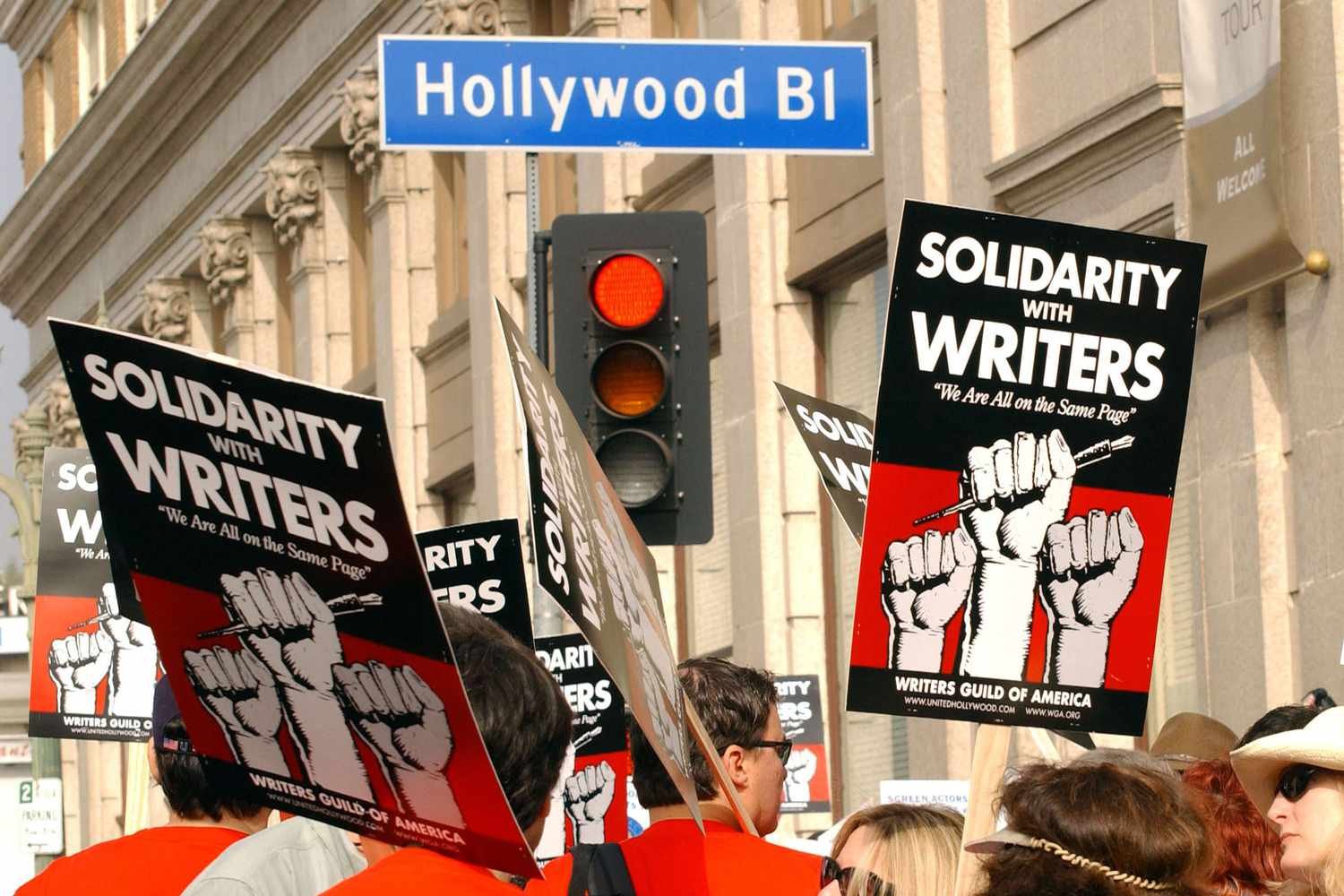WRITERS’ STRIKE
While writing is often romanticized as a labor of love, it is essential to acknowledge that writers, like any other professionals, deserve fair pay for their work. Unfortunately, many writers find themselves struggling due to low pay rates, unfavorable contracts, and an inequitable distribution of profits within the industry. In a groundbreaking move, the Writers Guild of America (WGA) comprising two influential labor unions, has initiated a strike that has taken the industry by storm. This united front represents the collective voices of more than 11,000 skilled writers in film, television, news, radio, and online media who have come together to demand change.
The primary objectives of the Writers’ Strike encompass a wide range of issues affecting writers in the industry. At the forefront of their demands lies the crucial issue of enhanced compensation. Writers are steadfastly seeking fair and just remuneration for their invaluable contributions, aiming to rectify the prevailing trend of underpayment and undervaluation. The strike is now crossing its one month mark, and the repercussions are becoming increasingly evident, with significant disruptions to the production schedules of major shows and films. The postponement of numerous highly anticipated projects serves as a stark reminder of the magnitude of the impact this strike is having on the entertainment industry as a whole.
Driven by a collective sense of injustice, writers across Los Angeles, New York, Pennsylvania, and Chicago have organized protests under the Writers Guild Protest. Social media campaigns, public rallies, and organized strikes have become the voice of discontent, drawing attention to the importance of valuing the work of writers in all industries. The Writers' Strike has gained widespread public support, with many industry professionals and fans alike recognizing the need for change.
The Writers Guild Protest is a testament to the determination and resilience of writers in their fight for fair treatment. It highlights the urgent need to address the issue of inadequate compensation and serves as a wake-up call to the industry, reminding stakeholders that behind every creative masterpiece lies the labor, talent, and dedication of writers who deserve to be valued and fairly compensated. The strike has sparked crucial conversations about the economic disparity within the entertainment industry and the need for comprehensive reforms.
The Writers’ Strike symbolizes the power of collective action and the strength that comes from solidarity. By standing united and demanding change, writers are striving to create a future where their contributions are recognized, their craft is respected, and fair pay becomes the norm rather than the exception. It is time for the industry to acknowledge the vital role writers play in shaping our culture and economy and to ensure that they receive the compensation they deserve. Only through these efforts can the industry move toward a more equitable and sustainable future for all its creative professionals.
How Many Strikes has the WGA Had?
Since its establishment in 1954, the Writers Guild of America (WGA) has witnessed a total of eight strikes, including the ongoing one. These strikes have been pivotal moments in the history of the union, addressing various crucial issues throughout the years. The earliest strikes centered around concerns such as pay scales, script ownership, material submissions, and residual payments. Subsequent strikes have focused on pay-TV residuals, foreign residual payments, and the distribution of content on the internet.
Throughout its history, the WGA and the studios have engaged in negotiations to resolve each strike, typically taking an average of 100 days to reach a resolution. These negotiations have been instrumental in finding common ground and reaching agreements that address the demands and concerns of both parties involved.
The history of strikes within the WGA reflects the ongoing struggle to protect the rights and interests of writers in an ever-evolving industry. It underscores the importance of collective action and negotiation to bring about positive changes that benefit all stakeholders in the world of writing and entertainment.
Click on the link down below to learn more.





